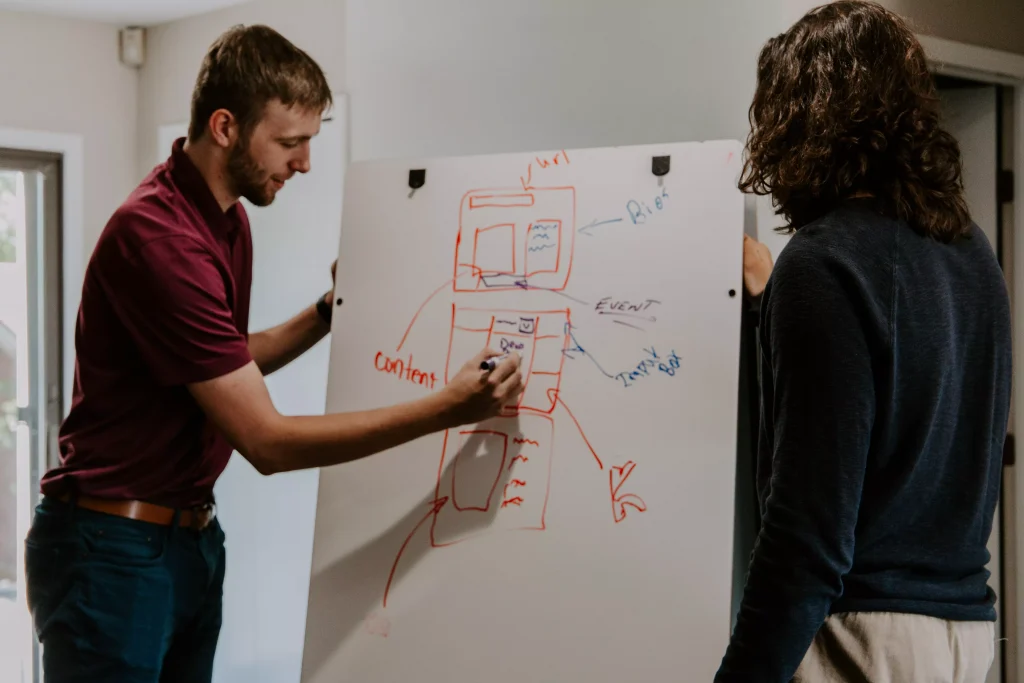Do you want to become an effective communicator with effective communication skills and presentation skills? We got you! See some key points down below on how to improve your communication skills through honest feedback and improving listening skills also. Learning to communicate effectively is a simple procedure that helps you to express yourself while also improving your personal and professional connections.
Knowing how to listen carefully and clearly can aid you in expressing yourself in job interviews, business meetings, and in your personal life. Also see some visual aids, if you learn faster in that way. But becoming a better communicator takes a lot of practice. If you have important presentations you must improve your nonverbal communication skills.
You must pay a little bit of respect to small talk, as it is very important for any communicator. In this article actions, you take will depend on how well will you improve. Pay close attention to important details, and be aware of your hand gestures and the work environment.
What Is Considered Effective Communication?

To be a great communicator, you must be able to actively listen as well as convey yourself effectively to others around you. Unfortunately, there is no one skill or practice that can improve your communication skills. Effective communication requires a wide range of abilities, including both verbal and nonverbal communication signals, as well as attentive listening.
Effective communication is important in and out of the job because it helps you to properly convey your thoughts and sentiments into messages that are easy to grasp. Effective communication makes you a more effective employee and reduces unexpected effects caused by misinterpretation. You will be a better collaborator and team member if you develop an effective communication approach that allows you to grasp what others are saying.
Also, an important part of effective communication consists of verbal messages and different types of management of the time limit. Leadership skills are closely tied to business communication skills, and for both, you need to have good posture, control your own emotions, and have an open mind.
Mostly those things can not be practiced in online communication, because seeing body language is also important. You must know all possible outcomes and many listeners use pitch and visual communication in a common framework of their good communication skills.
Skills That Are Necessary for Effective Communication

Developing improved communication habits necessitates the development of many key abilities that function in unison. Some of these talents are more emotionally driven interpersonal skills, while others include the way you talk or hold your body. Here are a few characteristics of excellent communicators:
Active listening is the foundation of effective communication. If you’re just concerned with how you communicate yourself, you’re probably not paying attention to or responding to what others have to say. A good communicator employs a number of listening techniques. They pay attentive attention to what others are saying and make others feel heard and taken into consideration.
Empathy: Being able to empathize with others’ emotions is an important aspect of being a good communicator. Empathizing entails both comprehending and empathizing with another person’s sentiments. Having a high level of emotional intelligence and displaying a capacity to empathize helps you create relationships with people and improves your communication skills.
Skills in nonverbal communication: Nonverbal signals, in addition to verbal information, are essential for efficient communication. Your communications and presenting abilities will improve if you become more conscious of your body language and voice tone.
Teamwork: An essential aspect of developing your corporate communication skills is the capacity to actively participate in team-building and continuously interact with colleagues. You’ll be able to interact more successfully with people on the job if you develop great connections and rapport with them.
10 Necessary Steps To Improve Your Communication Skills

There are a variety of effective techniques to enhance your communication abilities if you believe you lack the fundamentals. Here are some pointers to help you improve your communication skills:
Active listening should be practiced: Good listeners are always effective communicators. Active listening is responding positively to what others say and asking follow-up questions to demonstrate that you are paying attention.
Pay special attention to nonverbal communication: Nonverbal cues and signals may help you avoid misunderstandings and show interest to others around you. When interacting with someone in a professional context, pay attention to your facial expressions and body language. The initial impression you create on someone is influenced by your nonverbal clues. When meeting someone for the first time, maintaining eye contact, minimizing hand motions, and maintaining decent posture goes a long way.
Control your own feelings: It’s important to regulate your emotions and communicate them correctly in context for clear communication and your own personal well-being. Allowing strong emotions to seep into a professional situation inappropriately might lead to misunderstandings and conflict.
Inquire about comments: It’s quite OK to seek honest criticism on your communication abilities from coworkers. Asking your peers or subordinates for feedback on how to improve your communication skills might help you have a better understanding of how you come across in the workplace. Develop an openness to hearing other people’s perspectives and develop stronger bonds with your employees.
Make public speaking a habit: Although public speaking might be intimidating, there is no better method to improve your communication abilities than to participate in public speaking events. Whether speaking to a big group or one-on-one, great communicators are able to express their emotions accurately. Speaking in front of a group on a regular basis will highlight your strengths and limitations while also forcing you to build excellent communication skills.

Create a filter: Effective communicators have well-developed social skills and are able to control how they convey their ideas and emotions to others. Understand what is proper to say in various interpersonal situations. Developing a filter can help you enhance other communication methods while also ensuring that you maintain a certain degree of decorum and prevent workplace friction.
Ask for honest feedback: Receiving honest criticism from peers, bosses, and members of your team is crucial to becoming a stronger communicator, as it is with most leadership abilities. Others can help you identify areas for development that you would have otherwise ignored if you ask for input on a frequent basis.
Start and end with key points: Consider the research of “tappers and listeners” stated previously. The significance of clear communication cannot be overstated. Reiterate crucial ideas at the beginning and end of a presentation to ensure that the audience understands the main themes. This may also be performed by handing out a one-pager to participants that contains crucial ideas for them to contemplate during the presentation.
Master the art of timing: While some of their jokes may be inappropriate for the office, standup comedians are excellent communicators. Because they have mastered the art of timing, comedians like Chris Rock and Dave Chappelle are able to produce riveting 90-minute comedy performances.
Get to know your audience: It is critical to first get to know your audience in order to communicate successfully. Each audience is unique, with distinct tastes and cultural standards that must be taken into account while communicating. Asking audience members for examples of outstanding communicators inside the company is a wonderful method to learn expectations.
Conclusion

As a corporate leader, one of the most valuable talents you can develop is the ability to communicate properly. Remember to use both nonverbal and vocal clues while communicating.
To guarantee that the material of the discussion resonates with the audience, pay attention to what others have to say and overcommunicate in unique ways.
Read more articles in the Lifestyle Category
